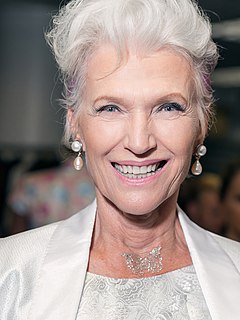A Quote by Kimbal Musk
We want kids in communities to know real food, and we want them to have a choice between real food and industrial food.
Related Quotes
We have to understand that we want to pay the farmers the real price for the food that they produce. It won't ever be cheap to buy real food. But it can be affordable. It's really something that we need to understand. It's the kind of work that it takes to grow food. We don't understand that piece of it.
Some kids have never seen what a real tomato looks like off the vine. They don't know where a cucumber comes from. And that really affects the way they view food. So a garden helps them really get their hands dirty, literally, and understand the whole process of where their food comes from. And I wanted them to see just how challenging and rewarding it is to grow your own food, so that they would better understand what our farmers are doing every single day across this country and have an appreciation for ... that American tradition of growing our own food and feeding ourselves.
I think America's food culture is embedded in fast-food culture. And the real question that we have is: How are we going to teach slow-food values in a fast-food world? Of course, it's very, very difficult to do, especially when children have grown up eating fast food and the values that go with that.
I think Americas food culture is embedded in fast-food culture. And the real question that we have is: How are we going to teach slow-food values in a fast-food world? Of course, its very, very difficult to do, especially when children have grown up eating fast food and the values that go with that.




























